Jackie McNamara: Two sides to Dundee United's team trauma
- Published
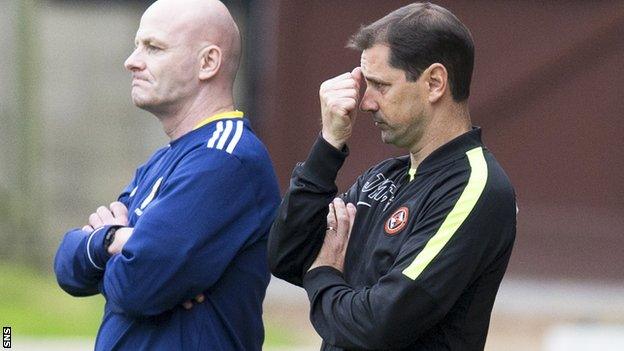
McNamara (right) has suffered poor recent results
The final whistle at McDiarmid Park on Saturday was merely the signal for a further bout of drama.
The Dundee United chairman, Stephen Thompson, made his way down towards the dressing room and, soon after he met with Jackie McNamara, word began to slip out that the club would be starting the search for a new manager.
Sentiment is seldom the prevailing mood when the relationship between a club and its manager comes to an end.
The timing and the surroundings rankled with McNamara, while Thompson would assert that the 2-1 defeat by 10-man St Johnstone would only have provoked another round of speculation about the manager's position, so swift action was necessary.
There are always conflicting viewpoints in a parting of the ways and both sides would reach for context to support their perspective on events.
Was McNamara's fate inevitable?
As United manager, McNamara presided over a period of achievement then a spell of decline. He guided the team to back-to-back cup finals, although it was St Johnstone who won the Scottish Cup against them and Celtic who lifted the League Cup.
Finishing fourth then fifth in the league was hardly abject, although if spending alone dictated performance then third place might have been more in keeping with United's budget.
Resources and performance do not always correlate and McNamara had grounds to rail against the timing of the sales of Gary Mackay-Steven and Stuart Armstrong to Celtic in January.
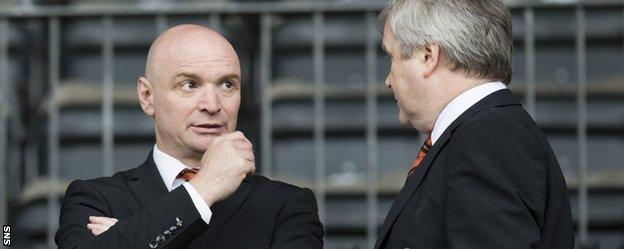
Dundee United chairman Stephen Thompson (left) informed McNamara of his decision at McDiarmid Park
United won their first match after the transfer window closed, against Stranraer in the Scottish Cup, but the team's form then collapsed. In the 24 league games played since then, they won only four and lost 16.
The club need to sell players to cover losses, so there was economic merit to the transfer dealings - and the same applied to Nadir Ciftci's departure to Celtic in the summer. Even so, McNamara was entitled to assert that sales ought to also be determined by the availability of capable replacements.
Results began to be an indictment against the manager and the team lacks experience in key areas. McNamara's recruitment has delivered successes and failures, since the likes of Andrew Robertson were signed from lower-league clubs then sold at a profit, but others like Darko Bodul and Rodney Sneijder made little or no impact.
Twelve months on from the team topping the Premiership after nine games, United are now second bottom. McNamara would argue for more time and his overall record as a manager remains impressive, but Thompson would point out that the downturn has not been stemmed even after new players arrived during the summer.
Ultimately, it is usually the chairman's view that prevails over the manager's.
Names in the frame
Potential successors are quickly identified, but the task of assessing them needs to be more measured. United still have a comparatively strong squad and there are talented youngsters like Blair Spittal, Charlie Telfer and John Souttar to mould, but immediate improvement is a necessity.
McNamara was an obvious choice to succeed Peter Houston in January 2013 because of his work in restoring Partick Thistle's fortunes and his ability to develop youths.
The remit was straightforward: compete for European qualification while bringing through young talent to be sold, and his contract entitled him to a percentage of transfer fees since the basic wage was less than his predecessors earned.
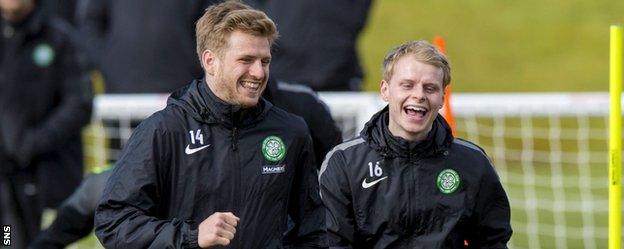
McNamara had to cope with the sale of Stuart Armstrong and Gary Mackay-Steven
The same tasks will apply to the next United manager, although experience and a proven track record of improving teams' form will figure highly in the assessment process. Potential candidates will seek their own assurances, though.
Thompson says he remains committed to United, despite being part of a consortium that has been negotiating to buy A-league club Newcastle Jets, and McNamara was provided with funds to spend in the transfer market.
United have also cut their debt, although money raised from player sales is not used for rebuilding alone, since there are losses to cover.
The level of investment in the squad will be relevant in negotiations, not least because United still carry a large squad that the club may need to reduce, as well as the long-term ambitions of the Thompson family.
Supporters groups have campaigned against Thompson and, although his sister Justine is taking a more prominent role, the sense remains of a club in transition.
Mixu Paatelainen, Stuart McCall, Michael O'Neill, Tommy Wright and Ray McKinnon have all been linked with the job. The position at Tannadice still retains its status in Scottish football, but the club and the new manager will make profound demands of each other.
- Published28 September 2015
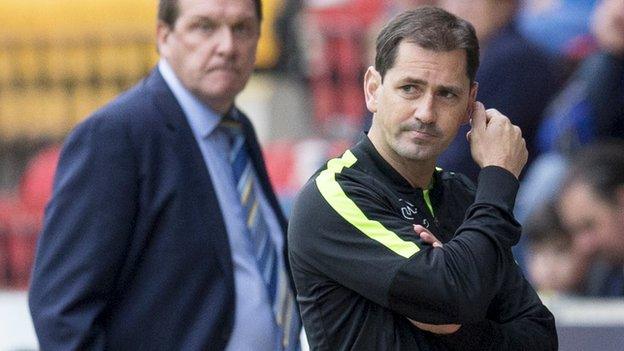
- Published28 September 2015
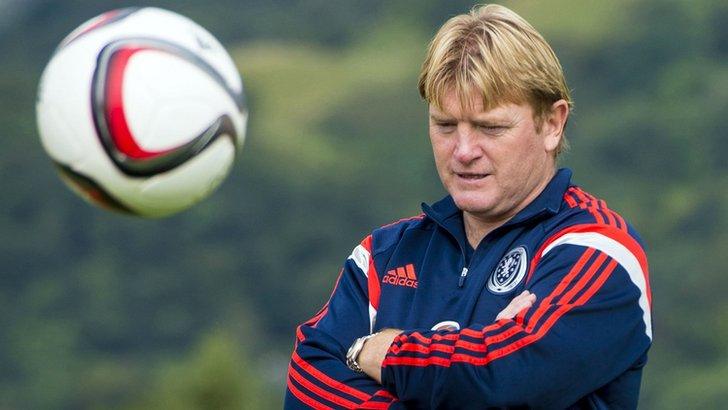
- Published28 September 2015
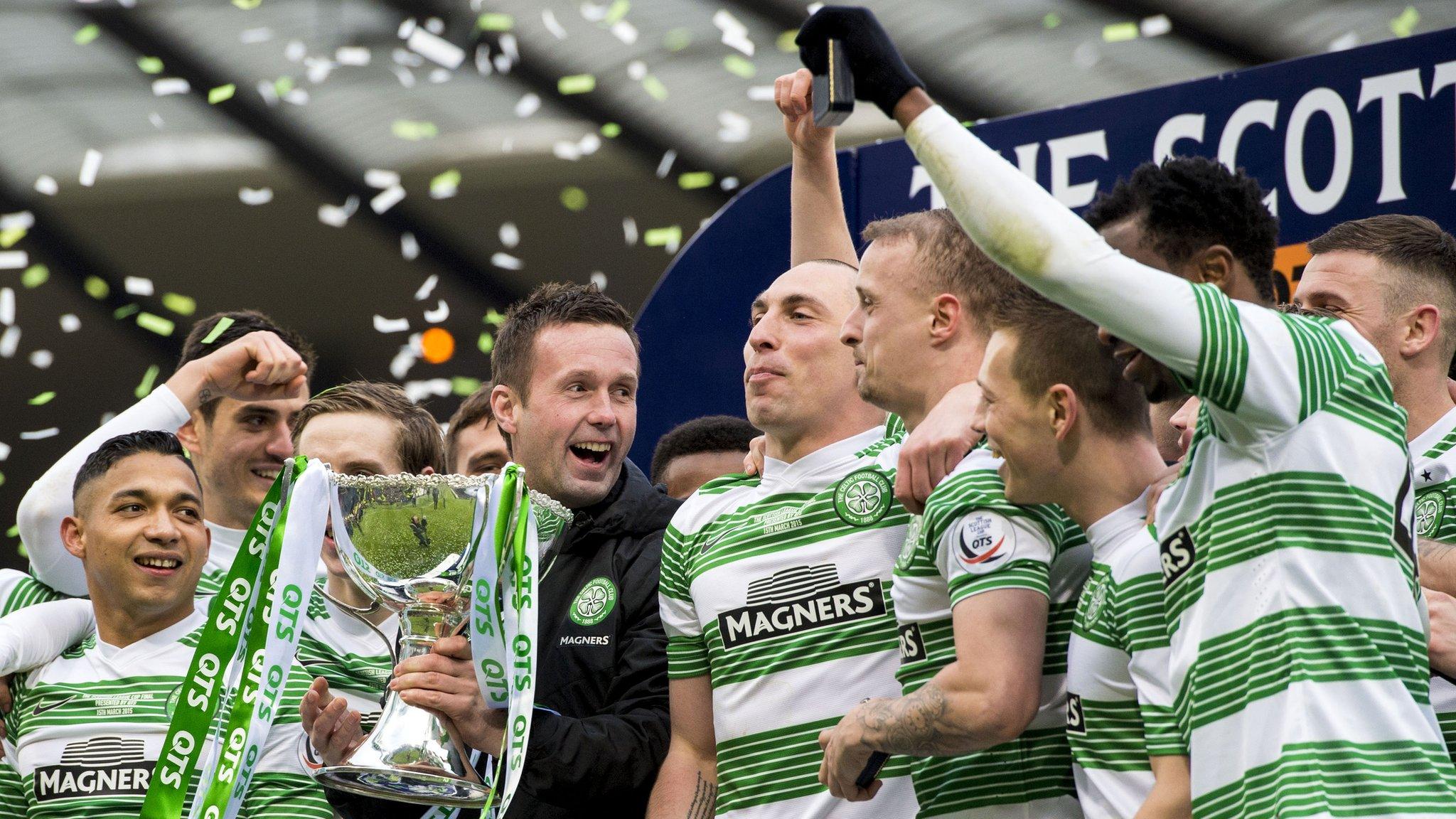
- Published20 June 2016

- Published7 June 2019
